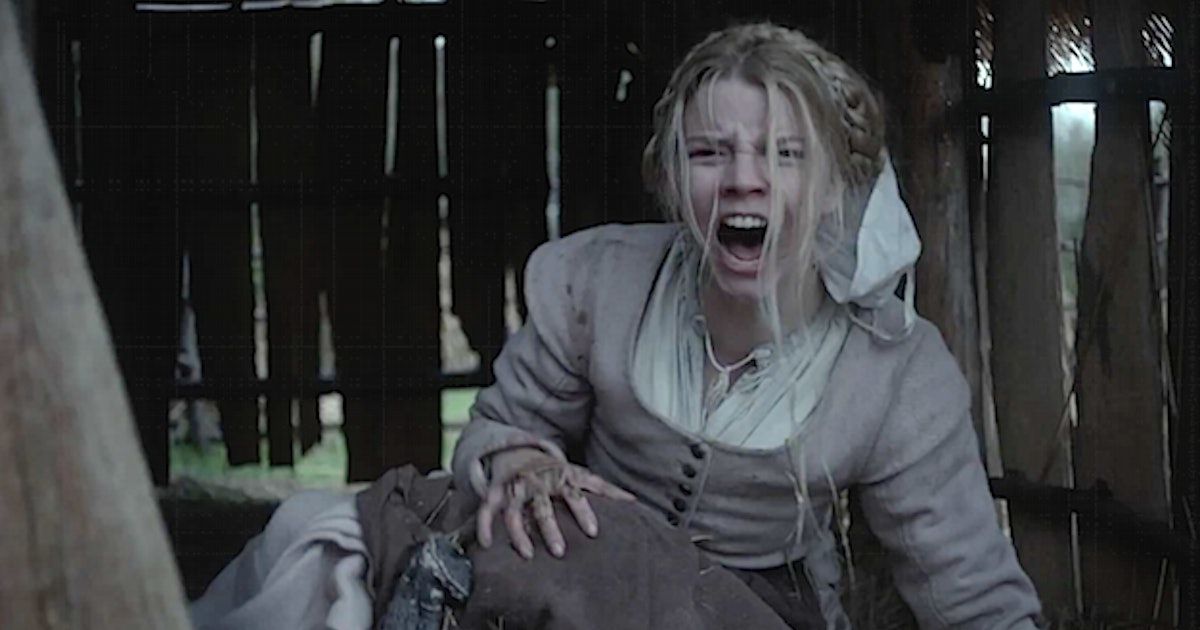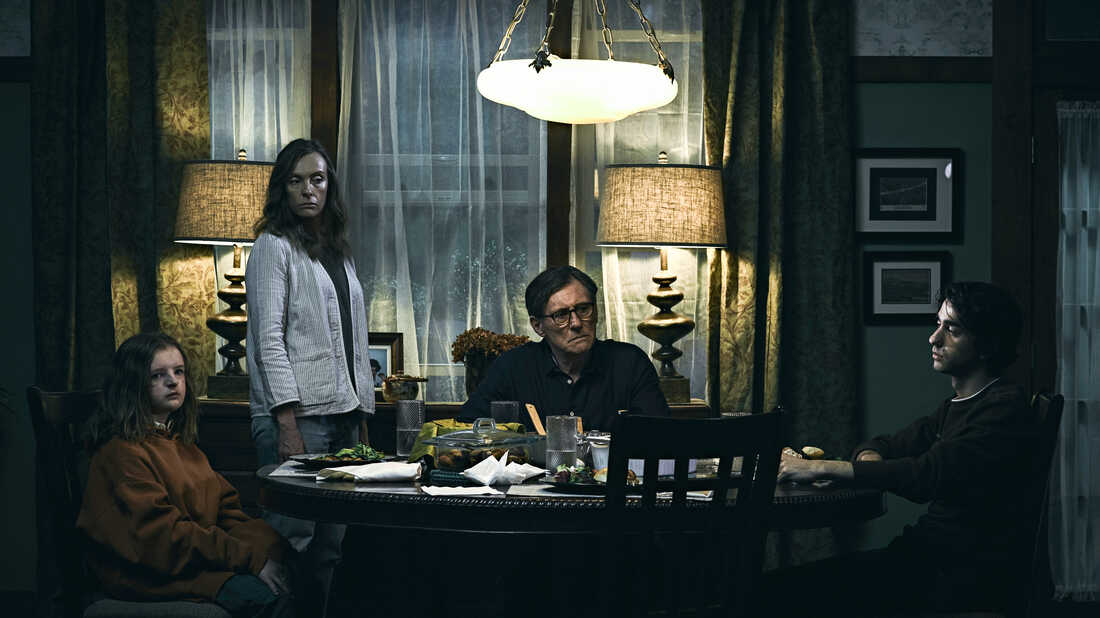Horror Gets Folked
In which Norm dives into Elevation's new 4K trio of THE WITCH, HEREDITARY and MIDSOMMAR -- and you can, too!

I’m not entirely comfortable with “elevated horror” as a descriptor. It implies the genre needs to be lifted up out of some fetid swamp, spiffed up and made ready for proper society, Pygmalion-style, when of course horror is one of the most artful genres in cinema, and always has been.
I mean, what other genre is as encouraging of mise en scene and high style? Is John Carpenter’s Halloween not high art, with its exquisite uses of Steadicam, score and silence? What about Michael Powell’s Peeping Tom, indicting viewers for letting its murderous protagonist turns us into collaborators? Or Herk Harvey’s Carnival of Souls, which feels downright Felliniesque in its portrayal of a supernatural reality reaching incoherently into our own?
I can’t blame Robert Eggers and Ari Aster for making movies that led us here, though. Eggers’ first feature The Witch, followed in quick succession by Aster’s Hereditary and Midsommar, gave A24 the chance to corner the market on a certain type of horror film – deliberate, moody, actor-driven, steeped in mythology held just outside the audience’s grasp – and further clarify its still-evolving brand. They were sold as “folk horror”, which makes sense given that all three films are rooted in musty old superstitions and rituals that prove to be very, very real; the “elevated” thing just sort of attached itself to the marketing, like another stray belief that grew too strong to be shaken.
The Witch and Hereditary were released in 4K editions by Lionsgate in the US, and Midsommar got its own deluxe Ultra High Definition platter in a bespoke director’s cut edition available exclusively through A24’s online website. In Canada, though, Elevation Pictures has just rolled out 4K/Blu-ray combo sets of all three films – though Midsommar is still only available up here in the theatrical cut.

I reviewed all three films for NOW when they opened, and if you’re curious to read my interviews with Eggers (and Anya Taylor-Joy) for The Witch and Aster for Hereditary and Midsommar (with Jack Reynor), respectively, there you go. If I have to pick a favorite among them, I’ll go with Eggers’ debut every time; The Witch traps us in 17th century New England with a family beset by a series of brutal losses, and slowly turning on one another.
Is it a story about paranoia, or the need to assign blame for your suffering in order to make sense of a chaotic world? (That’s what religion does, and Eggers opens the film by noting the characters we’ll be following are too fundamentalist for their colony of Puritans.) However you choose to approach it, The Witch is absolutely merciless, with star Taylor-Joy slowly crumpling under the responsibility forced upon her by her broken parents (Ralph Ineson and Kate Dickie, both excellent) while things just keep getting worse. It’s Eggers’ version of The Thing, if you step back a bit, and unlike that other John Carpenter classic it would play just as well if there was no external menace at all.
Hereditary and Midsommar … well, I think I respect Aster’s films more than I actually enjoy them; the pacing tends to work against my enjoyment of the experience. But of course The Witch moves even more slowly and I love that one, so maybe it’s just a matter of taste. Certainly the texture and performances in both of Aster’s films are exquisitely calibrated and delivered, from Toni Collette’s understated malice and Alex Wolff’s tragic confusion as a doubly doomed mother and son in Hereditary to Florence Pugh’s twin arias of depression and despair opposite the almost comically obtuse Raynor – in a role Chris Pratt was born to play – in Midsommar. But Aster’s films remain theoretical to me, where I experience Taylor-Joy’s mounting desperation in The Witch on a gut level.

That said, Aster does perform a kind of alchemy with stories of intimacy, betrayal and folklore, spinning narratives about vulnerable people who learn they can’t depend on the people they most need to. The night-and-day contrasts of the murky Hereditary and the sunlit Midsommar play out even more vividly in the 4K discs; I was surprised to find Midsommar the more revelatory upgrade, the higher resolution bringing out additional detail in textiles, interiors and certain culturally specific floral arrangements while HDR10 made even the smallest specks of color pop out in every frame. (The DTS-HD Master Audio track appears to be the same one on Elevation’s earlier Blu-ray; I admit I was hoping for Atmos, just to hear how it would serve the choral aspect of the soundtrack, but the existing mix renders all the wailing and chanting with enough oomph to freak out the dog.)
Hereditary looks great, but it’s not as much of a leap from the 2K presentation; maybe the deeper black levels work against seeing more of the movie, which was already pretty dark to begin with. (The opening title sequence looks amazing, though.) I’m not a hundred percent sure The Witch benefits from 4K either; Jarin Blaschke’s desaturated palette doesn’t give HDR much to work with, and I didn’t see much more detail in the image than the existing Blu-ray.

Still, if you’re a fan of these films you’ll want them on your shelf in the best possible quality … and I’m glad they’ve been released in combo editions that include Elevation’s previous Blus, the better to have all the extras handy. (The supplemental packages for each film are modest but enjoyable; A24 does have a knack for producing elevated EPKs, and the ones they’ve generated for Aster’s films are just the right side of self-serious.)
And if you do want them, I’ve got a set to give away! Just e-mail me at normwilner@gmail.com with the subject line IT’S FOLK HORROR DAMMIT by noon ET this Wednesday, October 26th, and one random entrant will win the package, courtesy of Elevation Pictures. (Must be a Canadian resident, apologies to everyone else.) Halloween is the real season of giving, after all.
Next week: Arrow’s Gothic Fantastico box squares off with Sony’s latest Columbia Classics set in your player, while Martin McDonagh’s The Banshees of Inisherin and Charlotte Wells’ Aftersun duke it out for dominance in Canadian theaters.
